The 20 Best Sad Movies on Netflix
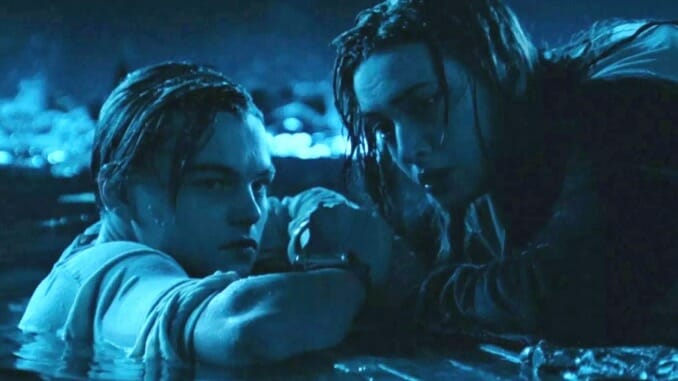
Sometimes you just need to cozy up and turn on a tearjerker. Sad movies can be a balm for our own pain, company for our misery, as the stories that unfold remind us that grief is part of our shared human experience and that heartache and melancholy are simply a part of life. But you don’t want to settle for any ol’ sob story. The movies we’ve selected here are the best sad movies that Netflix has to offer. Just keep the tissues handy.
Here are the 20 best sad movies on Netflix:
1. Roma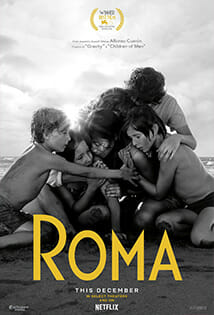 Year: 2014
Year: 2014
Director: Alfonso Cuarón
Stars: Yalitza Aparicio, Marina de Tavira, Diego Cortina Autrey, Carlos Peralta
Rating: R
Alfonso Cuarón’s most intimate film is also his most distancing. The camera sits back, black-and-white, focused not on the bourgeois children that represent the cinematographer-writer-director and his siblings growing up in Mexico City several decades ago, but moreso on the indigenous woman (Yalitza Aparicio) that cares for them and the household. Not even entirely focused on her, perhaps more focused on its classicist compositions of a place that no longer exists in the way Cuarón remembers it. The camera gazes and moves in trans-plane sequencing, giving us foreground, mid-ground and background elements in stark digital clarity. The sound mix is Dolby Atmos and enveloping. But the base aesthetic and narrative is Fellini, or long-lost Mexican neorealism, or Tati’s Playtime but with sight gags replaced by social concern and personal reverie. Reserved and immersive, introspective and outward-looking, old and new—some have accused Roma of being too calculated in what it tries to do, the balancing act it tries to pull off. Perhaps they’re not wrong, but it is to Cuarón’s immense credit as a thoughtful technician and storyteller that he does, in fact, pull it off. The result is a singular film experience, one that recreates something that was lost and then navigates it in such a way as to find the emergent story, then from that to find the emotional impact. So that when we come to that point late in Roma, we don’t even realize the slow, organic process by which we’ve been invested fully into the film; we’re not ready to be hit as hard as we are when the wallops come and the waves crash. It’s almost unbearable, but we bear it because we care about these people we’ve become involved with. And such is life. —Chad Betz
2. The Lost Daughter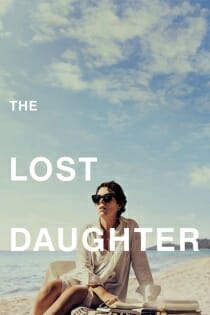 Year: 2021
Year: 2021
Director: Maggie Gyllenhaal
Stars: Olivia Colman, Dakota Johnson, Jessie Buckley, Paul Mescal, Dagmara Dominczyk, Oliver Jackson-Cohen, Peter Sarsgaard, Ed Harris
Rating: R
Runtime: 124 minutes
On the beach that comparative literature scholar Leda (Olivia Colman) lounges on throughout The Lost Daughter, the skies are a crystal blue, the beaches a shimmering white, the water warm and translucent. But the shore is also infested with crass, noisy people; Leda’s fruit infected by a malignant rot; her bedroom contaminated with screeching bugs; a little girl’s doll corrupted by noxious black liquid and writhing insects. This tonal tension is symptomatic of the film’s spirit: It’s a glossy apple, rapidly decaying from the inside out. The film takes place over a couple of days as Leda settles into a lavish working vacation. Her relaxation is interrupted, however, when she first lays eyes on Nina (Dakota Johnson), a beautiful, inscrutable young mother. Leda becomes obsessed with Nina, as the latter inadvertently resurfaces troubling memories of Leda’s own distressing experiences as a mother. From that moment onward, Leda’s haunting memories permeate The Lost Daughter until the apple is completely black. While the narrative itself, adapted from Elena Ferrante’s 2006 novel of the same name, is relatively straightforward, debut director Maggie Gyllenhaal, who also wrote the screenplay, tackles themes of internalized and externalized sexism with agility and complexity. Leda’s subtle, complex mental state would not have been possible to convey were it not for Gyllenhaal’s outstanding visual sensibilities. Leda’s struggles are largely internal, but I’m confident that Gyllenhaal’s uniquely tactile storytelling says a great deal more than words ever could. When Leda caresses Elena’s grimy doll, her touch is gentle and somehow filled with regret. When she slides a pin into Nina’s hat, it sounds sinister like a sword being unsheathed, but her careful placement is almost sensual. And when a younger Leda slices the flesh of an orange, her smooth, tactful carving almost feels ominous. Gyllenhaal’s extraordinary direction, paired with exceptional performances from The Lost Daughter’s lead actresses, culminate in a perfect storm that yields an astute portrait of the painful expectations of womanhood.—Aurora Amidon
3. I Lost My Body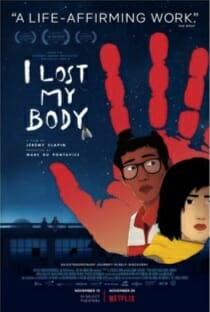 Year: 2019
Year: 2019
Director: Jérémy Clapin
Stars: Hakim Faris Hamza, Victoire Du Bois, Patrick d’Assumçao
Rating: NR
Runtime: 81 minutes
While we’re on board, at least passively, for however many sequels Pixar wants to give Toy Story, patient for however long another one takes, I Lost My Body is a singular animated film, increasingly of the kind that, frankly, don’t get made anymore. Partly because hand-drawn features made by small studios are rarer than ever, but mostly because it’s a defiantly adult animated film, wreathed in oblique storytelling and steeped in grief. Ostensibly about an anthropomorphic hand climbing and skittering its way across the city to find the person to whom it was once attached—the story of its severing slowly coming to light—the beauty of director Jérémy Clapin’s images, often limned in filth and decay, is in how revelatory they can be when tied so irrevocably to the perspective of a small hand navigating both its nascent life in the treacherous urban underground and the traumatic memories of its host body’s past. I Lost My Body is an unassuming, quietly heartbreaking achievement, one the Academy needs to prioritize now more than ever over expectedly competent big studio fare. —Dom Sinacola
4. Marriage Story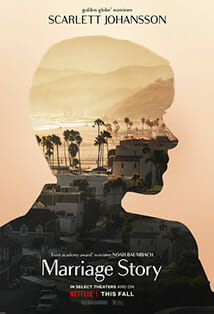 Year: 2019
Year: 2019
Director: Noah Baumbach
Stars: Scarlett Johansson, Adam Driver, Azhy Robertson, Laura Dern, Alan Alda, Ray Liotta, Julie Hagerty, Merritt Wever
Rating: R
The way that Adam Driver ends “Being Alive,” which his character in Marriage Story has just sung in full (including dialogue asides from Company’s lead’s friends), is like watching him drain what’s left of his spirit out onto the floor, in front of his small audience (which includes us). The performance starts off kind of goofy, the uninvited theater kid taking the reins to sing one of Broadway’s greatest showstoppers, but then, in another aside, he says, “Want something… want something…” He begins to get it. He begins to understand the weight of life, the dissatisfaction of squandered intimacy and what it might mean to finally become an adult: to embrace all those contradictions, all that alienation and loneliness. He takes a deep exhalation after the final notes, after the final belt; he finally realizes he’s got to grow up, take down his old life, make something new. It’s a lot like living on the Internet these days; the impossibility of crafting an “authentic self,” negligible the term may be, is compounded by a cultural landscape that refuses to admit that “authenticity” is as inauthentic a performance as anything else. Working through identities is painful and ugly. Arguably, we’re all working through how to be ourselves in relation to those around us. And that’s what Bobby, the 35-year-old at the center of Stephen Sondheim’s 1970 musical Company, is doing. The scene forces the viewer to make connections about their humanity, the art they’re experiencing, and the ever deadening world in which it all exists. Charlie grabs the microphone, drained, realizing that he has to figure out what he has to do next, to re-put his life together again. All of us, we’re putting it together too. Or trying, at least. That counts for something. —Kyle Turner
5. A Silent Voice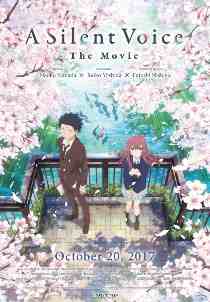 Year: 2016
Year: 2016
Director: Naoko Yamada
Stars: Miyu Irino, Saori Hayami, Aoi Yuki, Kensho Ono, Yuki Kaneko, Yui Ishikawa, Megumi Han, Toshiyuki Toyonaga, Mayu Matsuoka
Rating: TV-14
Runtime: 129 minutes
In a medium that too often feels at times constricted by the primacy of masculine aesthetic sensibilities and saturated with hyper-sexualized portrayals of women colloquially coded as “fan service,” Naoko Yamada’s presence is a welcome breath of fresh air, to say nothing of the inimitable quality of her films themselves. Inspired by the likes of Yasujiro Ozu, Alejandro Jodorowsky, Sergei Parajanov, Sofia Coppola, and Lucile Hadzihalilovic, Yamada is a director par excellence, capable of arresting attention and evoking melancholy and bittersweet catharsis through delicate compositions of deft sound, swift editing, ephemeral color palettes and characters with rich inner lives rife with knotty, relatable struggles. A Silent Voice, adapted from Yoshitoki Oima’s manga of the same name, is a prime example of all these sensibilities at play. When Shoya Ishida meets Shoko Nishimiya, a deaf transfer student, in elementary school, he bullies her relentlessly to the amusement of his classmates. One day when Shoya goes too far, forcing Shoko to transfer again for fear of her own safety, he is branded a pariah by his peers and retreats into a state of self-imposed isolation and self-hatred. Years later, Shoya meets Shoko once again, now as teenagers, and attempts to make amends for the harm he inflicted on her, all while wrestling to understand his own motivations for doing so. A Silent Voice is a film of tremendous emotional depth, an affecting portrait of adolescent abuse, reconciliation, and forgiveness for the harm perpetrated by others and ourselves.—Toussaint Egan
6. The Nightingale Year: 2018
Year: 2018
Director: Jennifer Kent
Stars: Aisling Franciosi, Sam Claflin, Baykali Ganambarr
Rating: R
Calling The Nightingale a revenge film sets an expectation of triumph, found in the satisfaction of grim justice done on the unjust. Let it be known that there’s no such catharsis in Jennifer Kent’s followup to her 2014 debut The Babadook. Revenge, while indeed a dish best served cold, tends to be prepared in one of two ways in cinema: with fist-pumping vigor or soul-corroding sobriety. The Nightingale sticks with the recipe for the latter. This is neither a pleasant movie nor a pleasing movie, but it is made with high aesthetic value to offset its unrelenting pitilessness: It’s fastidiously constructed, as one should expect from a director of Kent’s talent, and ferociously acted by her leading trio of Aisling Franciosi, Baykali Ganambarr and Sam Claflin, respectively playing Clare, an Irish convict driven by rage; Billy, an Aboriginal tracker driven by vengeance; and Hawkins, a British military officer driven by cold ambition and bottomless malice, who’s also Clare’s master and rapist. They’re three peas in a horrible pod, being 1820s Tasmania during the Black War, when English colonists slaughtered Aboriginal Tasmanians to the latter’s near extinction. It’s an altogether dark time in the country’s long history. Thus, The Nightingale is an appropriately dark film—but Kent is too shrewd a filmmaker to argue that Clare’s suffering trumps Billy’s, or to make any equivalency between them. She understands what must happen to fulfill Clare’s part in the story, and what must happen to fulfill Billy’s part. That she’s able to so seamlessly achieve both is an incredible accomplishment. The Nightingale is a far cry from The Babadook on obvious grounds of genre and style, though there are horrors here aplenty: Nightmare beats where Clare dances with Aidan, then with Hawkins and her other attackers. But the film expands on Kent’s interest in women’s stories by telling Billy’s tale alongside Clare’s, and shows once more her gift for making well-tread genre elements feel unique. If The Nightingale denies the traditional satisfactions of revenge cinema, it discovers new ones as well. —Andy Crump
7. Titanic Year: 1997
Year: 1997
Director: James Cameron
Stars: Leonardo DiCaprio, Kate Winslet, Billy Zane
Rating: PG-13
Runtime: 194 minutes
Decades after its theatrical debut, James Cameron’s blockbuster epic is still so ubiquitous in the pop culture zeitgeist, its filmmaking marvels are drowned out by young Kate-and-Leo nostalgia and that damned Celine Dion caterwaul (not to mention the now late James Horner’s iconic score). Cameron’s ear for dialogue may be woefully leaden, but he’s a shrewd storyteller, plunking a Romeo-and-Juliet redux aboard the doomed ocean liner and flanking the fictional romance with historical details, groundbreaking special effects and jaw-dropping visuals. The narrative lapses are at times dumbfounding—let’s face it, old Rose, who tosses a priceless artifact into the abyss after waxing ad nauseam about herself, is a thoughtless jerk—and the aforementioned dialogue is awful (to say nothing of Billy Zane doing his best mustache-twirling silent movie villain) but Titanic remains a painstaking testament to the all-in Hollywood spectacle.—Amanda Schurr
8. Philomena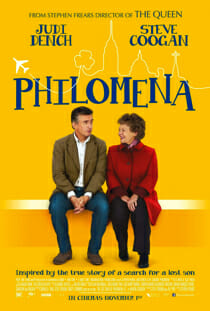 Year: 2004
Year: 2004
Director: Stephen Frears
Stars: Judi Dench, Steve Coogan, Sophie Kennedy Clark, Mare Winningham
Rating: PG-13
Runtime: 98 minutes
Philomena, follows a woman’s search for her son, who was “sold off” by the Irish Catholic church 50 years earlier. Starring Judi Dench and Steve Coogan, the heartbreaking twists and turns of Philomena’s journey are even more jaw-dropping as we learn the story is based on the 2009 nonfiction book The Lost Child of Philomena Lee, by BBC correspondent Martin Sixsmith. In 1950s Ireland young Philomena (Sophie Kennedy Clarke) is disowned by her family after a tryst results in pregnancy. Sent to Roscrea convent, she works in the laundries to pay for her room and board—and her sins. She and the other young mothers are allowed to see their children for an hour a day. Philomena and her son Anthony adhere to this limited schedule for nearly three years until Anthony is adopted, against her wishes, on Christmas 1955. Nearly five decades later, the elderly Philomena (Dench) reveals the secret she’s been keeping all these years to her daughter. They reach out to Sixsmith (Coogan), a recently fired British government flack and former BBC journalist, to help Philomena search for her lost son. Although talking about “chemistry” is usually reserved for romantic onscreen relationships, it applies here in spades. Dench and Coogan create a believable rapport for their disparate characters. They play with the yin and yang expertly, and we watch as the characters both grow from their experience together in subtle, yet substantial, ways. The bittersweet mystery could have easily strayed into maudlin, tabloid territory, if it solely targeted evil nuns or a Catholic Church coverup. But instead, Philomena adds much-needed moments of humor s it follows the journey for the truth, raising questions about faith, infallibility and family. The steady direction by Frears, coupled with the snappy and substantive dialogue, keeps the film grounded when even the truth becomes hard to believe.—Christine N. Ziemba
9. Steel Magnolias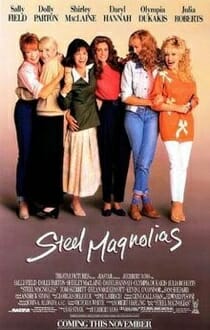 Year: 1989
Year: 1989
Director: Herbert Ross
Stars: Sally Field, Dolly Parton, Shirley MacLaine, Daryl Hannah, Olympia Dukakis, Julia Roberts, Tom Skerritt, Sam Shepard
Rating: PG
Runtime: 118 minutes
Based on a stage play by Robert Harling, this story chronicles the bonds among a group of women in Louisiana. Occasioned by the death of the playwright’s sister from diabetes complications, it touches on the quotidian (but life-altering) dramas of friendship and love, marriage and parenthood, illness and lives cut short. Steel Magnolias stars Sally Field, Dolly Parton, Shirley MacLaine, Olympia Dukakis, Daryl Hannah and Julia Roberts and is generally acknowledged to have initiated Roberts into stardom, though Sally Field’s performance is probably the standout. Not an overwhelmingly clever film, it is certainly a compassionate one, and it presents a humble and kind-spirited testimony to the sustaining power of female friendship. —Amy Glynn
10. Little Women Year: 1994
Year: 1994
Director: Gillian Armstrong
Stars:: Winona Ryder, Kirsten Dunst, Christian Bale, Claire Danes, Susan Sarandon
Rating: PG
Runtime: 118 minutes
Louisa May Alcott’s timeless 19th century novel about a close-knit Massachusetts family set during and after the Civil War has been adapted many times and in many ways, but perhaps none are as iconic as 1994’s Little Women. Directed by Gillian Armstrong and written by Robin Swicord, this 󈨞s dream lineup of March girls features Winona Ryder as Jo, Kirsten Dunst and Samantha Mathis as Amy, Claire Danes as Beth, Trini Alvarado as Meg, and Susan Sarandon as Marmee. The hits just kept coming with the film’s love interests, including Eric Stoltz as John Brook and Christian Bale as Laurie. A beautiful and emotional telling from start to finish, the only mark against the movie might be how much undeniable chemistry there is here between Jo and Laurie. Yes, Amy is a brat (later reformed) and Beth shatters our hearts (Danes’ chin quiver is doing work) as expected, but why would Jo ever cast this Laurie to the side when their scenes sparkle with such a fiery connection? Alas, though the Jo/Laurie faithful won’t find peace here, Gabriel Byrne’s soulful Friedrich Bhaer does help soothe the burn a little. Really the key word for this version of Little Women is warmth, from ignited passions to cozy fireside family moments of forgiveness and redemption. That coupled with an exceptional cast and a thoughtful period aesthetic renders this adaptation as enduringly charming as the classic on which it’s based. —Allison Keene
-

-

-

-

-

-

-

-

-

-

-

-

-

-

-

-

-

-

-

-

-

-

-

-

-

-

-

-

-

-

-

-

-

-

-

-

-

-

-

-

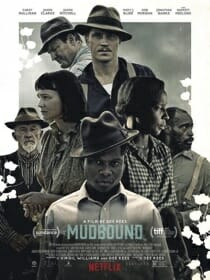 Year: 2017
Year: 2017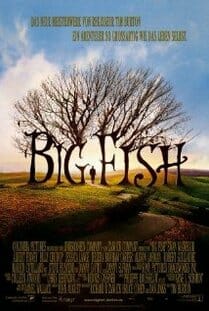 Year: 2003
Year: 2003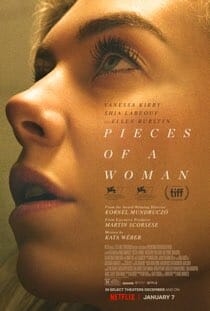 Year: 2018
Year: 2018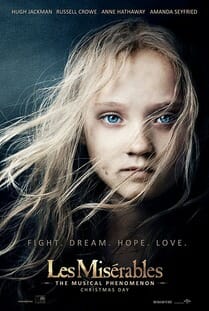
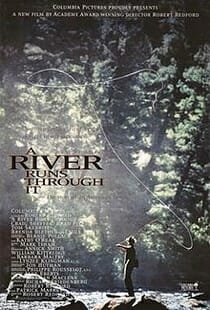 Year: 2012
Year: 2012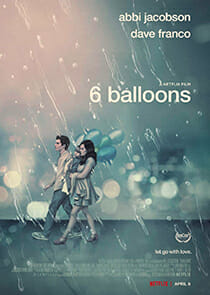 Year: 2018
Year: 2018 Year: 2019, 2020
Year: 2019, 2020
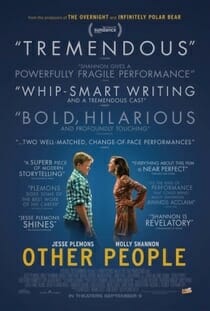 Year: 2016
Year: 2016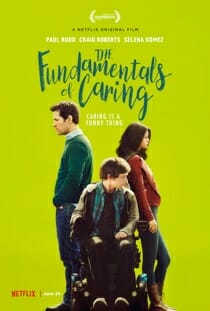 Year: 2016
Year: 2016






































